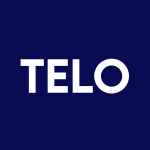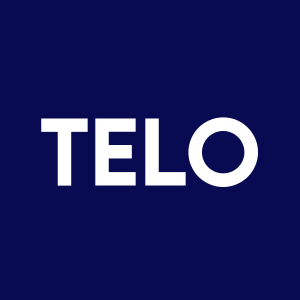Welcome to our dedicated page for Telomir Pharms news (Ticker: TELO), a resource for investors and traders seeking the latest updates and insights on Telomir Pharms stock.
Telomir Pharmaceuticals, Inc. (NASDAQ: TELO) is a preclinical-stage biotechnology company whose news flow centers on Telomir-1, its lead small-molecule candidate targeting epigenetic and metabolic drivers of cancer, aging, and age-related disease. Company press releases and corresponding 8‑K filings provide detailed updates on preclinical data, regulatory progress, and corporate developments related to this program.
Investors following TELO news will find frequent reports on oncology studies, including results in triple-negative breast cancer, prostate cancer, pancreatic cancer, and leukemia models. Recent announcements describe Telomir-1’s effects on tumor growth and metastatic spread in TNBC xenografts, reductions in PSA levels and tumor volume in prostate cancer systems, and dose-dependent cytotoxicity in aggressive leukemia cells. Other updates highlight Telomir-1’s impact on DNA methylation of tumor-suppressor genes and its inhibition of iron-dependent histone demethylases.
Another key category of Telomir news involves IND-enabling and safety milestones. The company has reported completion of GLP toxicology and safety pharmacology studies in rat and dog models, noting favorable tolerability and consistent systemic exposure after oral dosing. These items are often disclosed both via press release and in Item 8.01 sections of Form 8‑K, giving additional regulatory context.
Corporate and strategic developments also appear in TELO’s news stream. Examples include the binding Letter of Intent to acquire TELI Pharmaceuticals, Inc. to consolidate worldwide rights to Telomir-1, and Nasdaq communications regarding listing rule compliance for annual shareholder meetings. Together, these updates provide insight into Telomir’s scientific progress, regulatory planning, and corporate positioning as it advances Telomir-1 toward potential clinical evaluation.
Telomir Pharmaceuticals (NASDAQ:TELO) reported preclinical efficacy for Telomir-1 in zebrafish TNBC xenograft models on January 5, 2026. Telomir-1 produced statistically significant reductions in primary tumor growth and metastatic dissemination in aggressive TNBC models, including an HCC1806 model with limited paclitaxel responsiveness.
Telomir-1 matched paclitaxel activity in a BT-549 model and enhanced tumor inhibition when combined with paclitaxel. No activity was seen in an MDA-MB-231 resistant model. The company is advancing IND-enabling activities and refining patient-selection strategies.
Telomir Pharmaceuticals (NASDAQ:TELO) reported favorable IND-enabling GLP toxicology and safety pharmacology results for lead candidate Telomir-1 (Zn-Telomir) on December 18, 2025. Across rat and dog studies and in vitro assays, the company observed no treatment-related adverse or dose-limiting toxicities and reported consistent systemic exposure following oral dosing. Key endpoints—cardiovascular, respiratory, phototoxicity, and repeat-dose toxicology—showed no clinically concerning signals. Final QA review of study reports is ongoing. Telomir expects to submit an IND in Q1 2026 and to initiate first-in-human studies in H1 2026, subject to regulatory review.
Telomir Pharmaceuticals (NASDAQ:TELO) reported preclinical data on November 25, 2025 showing its lead candidate Telomir-1 reduced PSA release in androgen-responsive LNCaP human prostate cancer cells in a concentration-related manner.
Prior PC3 xenograft results cited include an approximately 50% tumor volume reduction with Telomir-1 alone and full tumor-volume reduction with paclitaxel plus Telomir-1 with no mortality in that cohort. The company said Telomir-1 shows activity across epigenetic regulators, reduces oxidative stress, and did not elongate telomeres in preclinical tests.
Telomir is continuing preclinical work and advancing IND-enabling activities as it prepares for planned clinical testing.
Telomir Pharmaceuticals (NASDAQ:TELO) on November 21, 2025 announced in vitro data showing its investigational small molecule Telomir-1 produced a clear, dose-dependent reduction in viable HL60 human leukemia cells.
The release cites prior preclinical findings: intracellular iron reduction vs deferoxamine, reversal of hypermethylation in multiple tumor-suppressor genes (STAT1, CDKN2A, MASPIN, RASSF1A, CASP8, GSTP1), and inhibition of KDM2, KDM5 and KDM6 histone demethylases. Telomir-1 activity is presented as extending the program into blood cancers while remaining at the preclinical stage.
Telomir Pharmaceuticals (NASDAQ:TELO) reported preclinical live-cell imaging showing its lead compound Telomir-1 reduced intracellular ferrous iron in human HaCaT keratinocyte cells at submicromolar concentrations and outperformed the FDA-approved chelator deferoxamine (DFO) at the same concentrations and time points (3, 6 and 16 hours).
The company said Telomir-1 is formulated as Telomir-Zn to exchange excess iron/copper for bioavailable zinc, targeting epigenetic enzymes (KDM families) linked to oxidative stress, methylation changes, and genomic instability. Results are limited to in vitro preclinical data and the company plans further preclinical evaluation.
Telomir Pharmaceuticals (NASDAQ:TELO) reported preclinical in vivo data (mice with aggressive human prostate tumors) showing oral Telomir-1 reduced DNA methylation of CASP8 and GSTP1 versus vehicle and chemotherapy at Day 10 and Day 21.
Telomir-1 produced a progressive, sustained methylation decrease through Day 21, while Rapamycin's early Day 10 effect partially rebounded by Day 21. Chemotherapy alone did not lower methylation. Combination Telomir-1 + chemotherapy showed lower methylation than chemotherapy alone.
Telomir Pharmaceuticals (NASDAQ:TELO) executed a binding LOI to acquire TELI Pharmaceuticals and consolidate worldwide rights to Telomir-1, converting each TELI share into TELO stock with an exchange ratio set by independent valuation. The deal includes up to $5 million in potential shareholder contributions: $1M at closing, $2M on IND acceptance, $2M at Phase 1/2 start. Closing is subject to shareholder approval, regulatory and diligence conditions; TELI shareholders face a six-month lockup. Telomir-1 has multiple preclinical signals across oncology, AMD, metabolic and aging models, and unified rights aim to enable global partnerships and out-licensing across larger ex-U.S. markets.
Telomir Pharmaceuticals (NASDAQ:TELO) reported new preclinical laboratory data on October 14, 2025 showing that Telomir-1 produces a concentration-dependent reduction in survival and mitochondrial activity of human pancreatic cancer (PANC-1) cells.
Effects were partially reversed by iron re-addition, implying iron-dependent mechanisms plus additional metabolic or epigenetic pathways. Telomir plans expanded preclinical studies, in vivo validation, and continued Investigational New Drug (IND) preparation.
Telomir Pharmaceuticals (NASDAQ:TELO) reported preclinical findings on October 9, 2025 showing Telomir-1 selectively reduces viability of aggressive triple-negative breast cancer (TNBC) cells in dose-dependent laboratory studies. The compound impaired cellular energy and mitochondrial function and caused cell death via an iron-dependent mechanism; cell viability recovered when iron was restored, supporting a defined mechanism linked to Jumonji domain histone demethylases (KDM5A/B, KDM6B). Telomir plans additional cancer models, animal studies, and IND-enabling work. The release notes TNBC represents 10–15% of breast cancers, with metastatic five-year survival around 12–15% and median overall survival ~11–13 months.
Telomir Pharmaceuticals (NASDAQ:TELO) reported preclinical results dated October 7, 2025 showing its candidate Telomir-1 reset DNA methylation and reactivated tumor suppressor genes MASPIN and RASSF1A in aggressive prostate cancer models.
Key findings: dose-dependent reduction in RASSF1A methylation, reversal of chemotherapy-induced MASPIN hypermethylation, ~50% tumor volume reduction in vivo, and elimination of chemotherapy-related mortality in the reported models. Telomir-1 also showed prior preclinical effects on STAT1, CDKN2A, histone demethylases, mitochondrial function, and telomere/epigenetic markers. Telomir is advancing Telomir-1 into IND-enabling preclinical studies.


